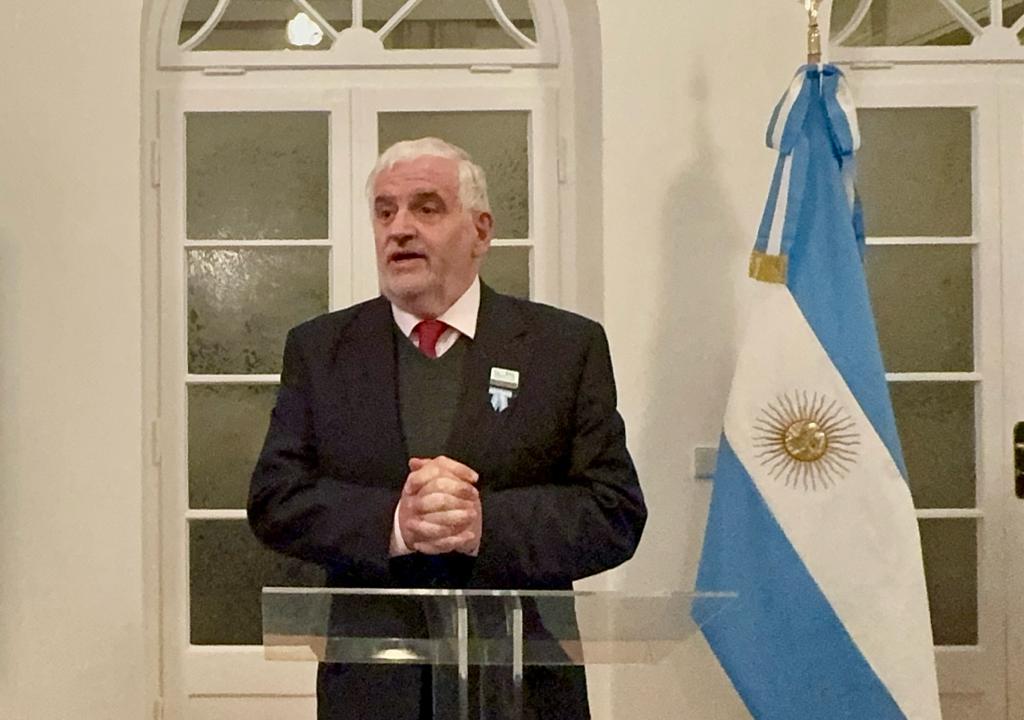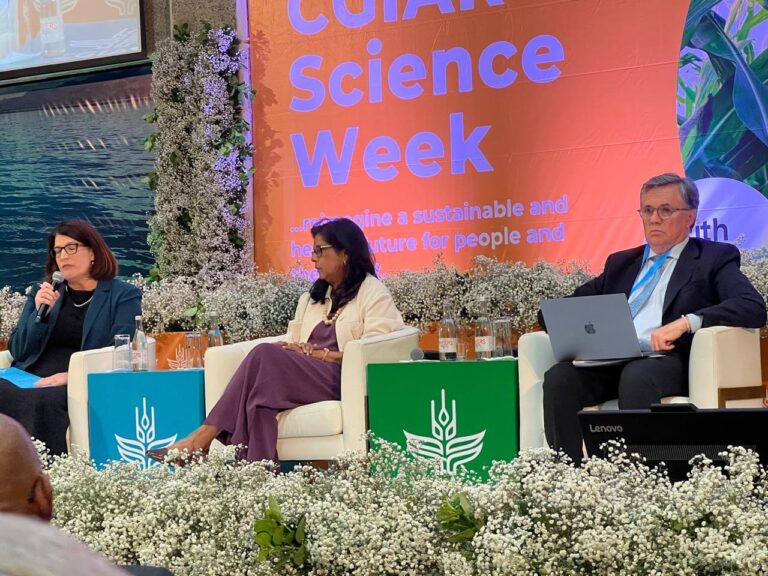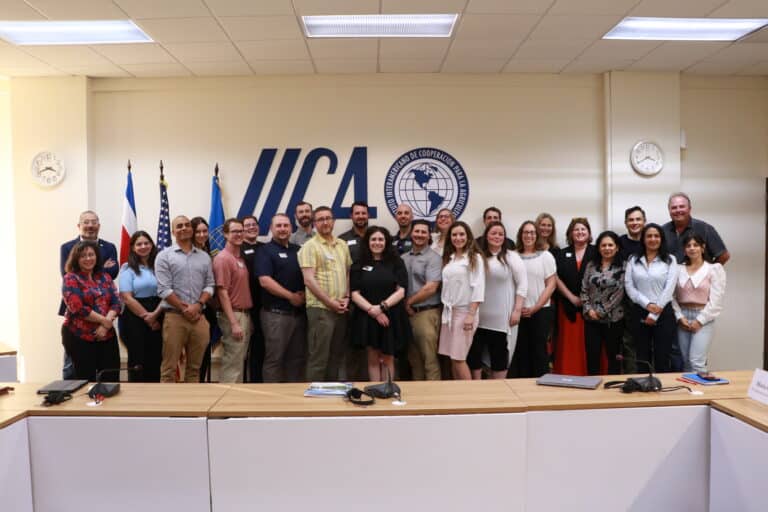Vilella said his country intended to ask IICA and the Latin American Bioeconomy Network, which was established in 2023, to help the region focus on the conceptualization of the bioeconomy in response to Brazil’s proposal that the G20 address the issue in 2024.

Berlin, January 23, 2024 (IICA). The Secretary of Agriculture, Livestock and Fisheries of Argentina, Fernando Vilella, praised the Inter-American Institute for Cooperation on Agriculture (IICA) for its role in promoting the bioeconomy across the region, and applauded Brazil for including the issue in the documents of the G20, in its capacity as the chair of the forum of the world’s largest economies in 2024.
“The inaugural documents for Brazil’s presidency of the G20 not only include the topic of agriculture, as has been the case for some time, but also the bioeconomy, which will enable us to engage in a conceptual discussion of the issue,” Vilella observed in Berlin, where, along with other Latin American ministers and IICA, he took part in the Global Forum for Food and Agriculture, organized by the German government, which brought together ministers and officials from around the world.
“IICA plays an important role in the work of all our countries. There is a body for the coordination of bioeconomy issues of which I was a member before taking office, as an expert from Argentina, along with other colleagues. IICA is not affected by changes of government in the countries, which can impact the continuity of such work. And since it opted to take the lead on the issue, things have gone very well,” Vilella remarked.
“We intend to ask IICA, and the entire Latin American Bioeconomy Network that was set up last year, to help us focus on the conceptualization of the bioeconomy, in response to Brazil’s proposal that the topic be discussed by the G20 during 2024,” he added.
After Vilella took over as Secretary of Agriculture, Livestock and Fisheries of Argentina last December, he announced his intention to change the name of his portfolio to “Bioeconomy,” underlining his commitment to the production model that makes it possible to harness natural resources in a comprehensive and sustainable manner.
Vilella explained that changing the ministry’s name in Argentina to “Secretariat of Bioeconomy” will highlight the importance attached to this concept.
He added that, “the bioeconomy concept adds environmental and social elements to the usual production-related ones. We see this concept as being linked to development at the territorial level, since it is in rural areas that value is added to biomass and the most important scientific and technological developments are incorporated.”
“Thus, knowledge migrates to the territory and not the other way around, as in the traditional visions of agriculture that regarded it as being concentrated in the cities. This new vision is what we want to incorporate, and IICA is a key player in our efforts,” he added.
Vilella praised IICA’s role in international forums on agriculture, trade and climate change, where it defends the interests of the Americas and empowers the voice of the region.
“At the most recent environmental summits, it was thanks to IICA that, for the first time, all the countries of the continent, from Canada to Argentina, presented documents setting out a joint position. There is a great presence at the political level and in terms of communication. By means of different actions, IICA is playing a leading role that we applaud, and I’m convinced that its role is key, as a coordinator and promoter of ideas designed to achieve more productive and sustainable agriculture.”
More information:
Institutional Communication Division.
comunicacion.institucional@iica.int











